Criminal Process
The criminal justice process has many phases which involve law enforcement, prosecutors, and the court. Below is a breakdown of each phase with helpful explanations of what occurs and where victims' rights fit in.
- Investigation
- Arrest
- Bond Hearing
- Appearances
- Preliminary Hearing / Grand Jury
- Guilty Plea / Trial
- Probation / Parole
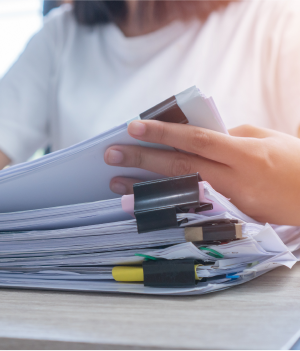
Investigation
When a victim reports a crime to law enforcement, they enter the "Investigation Stage" of the Criminal Process. Their case is often assigned to an investigator, who has to establish that a criminal act was committed, identify and arrest the person responsible for the criminal act, and attempt to recover any property and evidence. Criminal investigations include gathering information, interviewing parties, and collecting evidence.
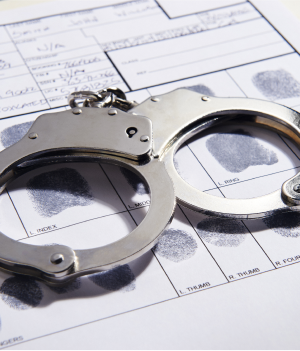
Arrest
Once an offender is arrested, victims have the right to be notified. Victims of crime have the right to "be reasonably informed when the accused or convicted person is arrested, released from custody, or has escaped." S.C. Constitution Art. I § 24 (A) (2).
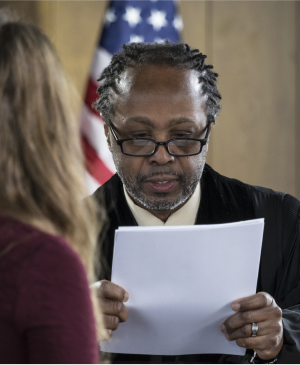
Bond Hearing
A bond hearing usually takes place within 24 hours after the arrest. This hearing determines whether the offender stays in jail pending trial or whether they are allowed to be released on bond. The two factors that the court considers are if the defendant is flight risk and if the defendant is a danger to the community. The defendant will also be given a First Appearance date, if the case is to be handled in General Sessions. Victims have a right to "be reasonably informed of and be allowed to submit either a written or oral statement at all hearings affecting bond or bail." S.C. Constitution Art. I § 24 (A) (4).
Victims also have the right to "be reasonably protected from the accused or persons acting on his behalf throughout the criminal justice process." S.C. Constitution Art. I § 24 (A) (6). A common condition of bond is that there is a "no contact" order imposed on the defendant for the victim's protection. Victims have the right to request a "no contact" order.
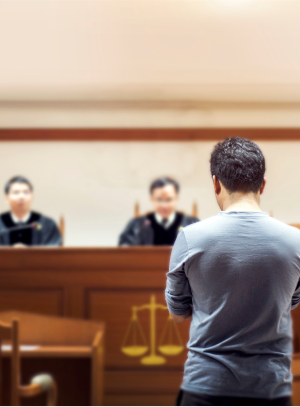
Appearances
First Court Appearance
At the first appearance, the court covers administrative issues. They evaluate the seriousness of the crime and decide how long it will take to process. They also may determine whether the offender has an attorney or needs to have an attorney appointed for them.
Second Court Appearance
The second appearance is designed to inform the court whether the case will be a plea or trial. A defendant has the right to plead guilty at any time prior to the jury returning a verdict.
Victims have a right to "be informed of and present at any criminal proceedings which are dispositive of the charges where the defendant has the right to be present." S.C. Constitution Art. I § 24 (A) (3). Usually appearances are not dispositive of the charges, although the offender always has the option to accept a guilty plea at the second court appearance.
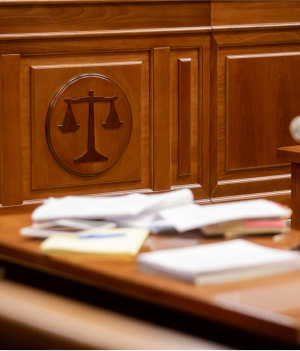
Preliminary Hearing / Grand Jury
The purpose of a preliminary hearing is to determine if the State can prove that there is probable cause to believe that the defendant committed the crime. In order to show probable cause, the State has to have more evidence than the honest suspicions of law enforcement officers. The State presents reasonable grounds for showing the crime was committed and that the defendant committed it. The defendant may ask questions of the State's witnesses but may not present evidence at a preliminary hearing.
Rule 2(b), SCRCrimP states that the preliminary examination shall not be held if the defendant is indicted by a grand jury or waives indictment before the preliminary hearing is held. A Grand Jury indictment is similar to a preliminary hearing, in that they too determine whether there is probable cause to believe that the defendant committed the crime. The grand jury has 18 members who meet once a month. They consider the evidence the State has to offer and return with a "true bill" (yes there was enough evidence) or a "no bill" (no there was not enough evidence). Only 12 out of the 18 members of the Grand Jury must vote to true bill an indictment.
Either of these hearings can happen during the same time as the appearances. Victims have the right to attend the preliminary hearing. However, the Grand Jury is only open to the members of the Grand Jury and the law enforcement officer or solicitor presenting the case. The defendant does not attend the Grand Jury proceedings.
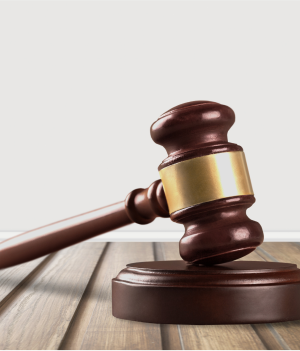
Guilty Plea / Trial
A criminal case concludes either with a guilty plea or a trial. Guilty pleas can be taken at any point after arrest, including during a trial. In preparation for the trial, there is usually a period of "discovery" where both sides share the evidence they will likely present at trial.
Victims' Rights leading up to trial and during trial are as follows: S.C. Constitution Art. I § 24 (A)
(3) be informed of and present at any criminal proceedings which are dispositive of the charges where the defendant has the right to be present;
(7) confer with the prosecution, after the crime against the victim has been charged, before the trial or before any disposition and informed of the disposition;
(8) have reasonable access after the conclusion of the criminal investigation to all documents relating to the crime against the victim before trial;
To summarize, these sections mean that a victim has the right to talk to the Solicitor before a guilty plea or trial. They should have access to any documents from Discovery. And they should be informed of and present at any guilty plea or trial.
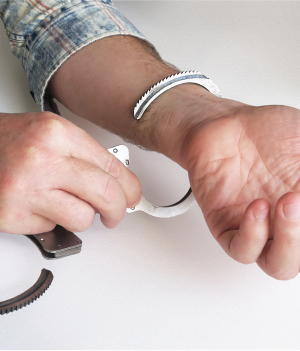
Probation / Parole
A defendant may be sentenced to probation, which is supervised community release to avoid an active prison sentence, or be sentenced to an active sentence, after which they may be eligible for earlier release on parole. This means that the offender will no longer be incarcerated, but they will have supervision and conditions that they need to comply with to complete their sentence. If restitution was ordered, the victim will receive the funds while the offender is on probation or parole.
During this time, victims have the following rights:
S.C. Constitution Art. I § 24 (A)
(2) be reasonably informed when the accused or convicted person is arrested, released from custody, or has escaped;
(9) receive prompt and full restitution from the person or persons convicted of the criminal conduct that caused the victim's loss or injury including both adult and juvenile offenders
This website is funded through under Grant No. 2020-V3-GX-K016, awarded by the Office for Victims of Crime, Office of Justice Programs, U.S. Department of Justice. The opinions, findings, and conclusions or recommendations expressed in this website are those of the contributors and do not necessarily represent the official position or policies of the U.S. Department of Justice.
This website was made possible by a subgrant from the National Crime Victim Law Institute (NCVLI) pursuant to Grant No. 2017-VF-GX-K130, awarded to NCVLI by the Office for Victims of Crime, Office of Justice Programs, U.S. Department of Justice. The opinions, findings, conclusions or recommendations expressed are those of the author(s) and do not necessarily represent the official position or policies of NCVLI.
This Web site is funded through a grant from the Office for Victims of Crime, Office of Justice Programs, U.S. Department of Justice. Neither the U.S. Department of Justice nor any of its components operate, control, are responsible for, or necessarily endorse, this Web site (including, without limitation, its content, technical infrastructure, and policies, and any services or tools provided).
This Web site was made possible by a subgrant from the National Crime Victim Law Institute (NCVLI) pursuant to Grant No. 2017-VF-GX-K130, awarded to NCVLI by the Office for Victims of Crime, Office of Justice Programs, U.S. Department of Justice. The opinions, findings, conclusions or recommendations expressed are those of the author(s) and do not necessarily represent the official position or policies of NCVLI.
© 2023 | PRIVACY POLICY | TERMS & CONDITIONS
